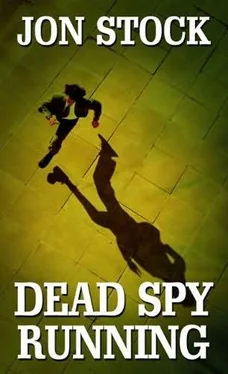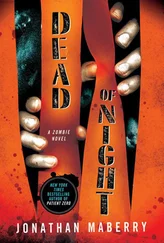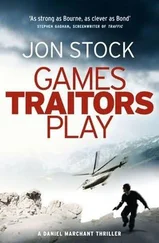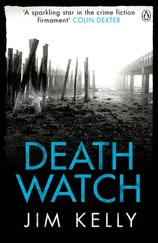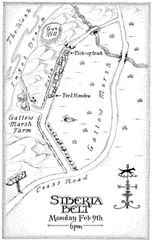Jon Stock - Dead Spy Running
Здесь есть возможность читать онлайн «Jon Stock - Dead Spy Running» — ознакомительный отрывок электронной книги совершенно бесплатно, а после прочтения отрывка купить полную версию. В некоторых случаях можно слушать аудио, скачать через торрент в формате fb2 и присутствует краткое содержание. Год выпуска: 2009, Издательство: St. Martin, Жанр: Триллер, на английском языке. Описание произведения, (предисловие) а так же отзывы посетителей доступны на портале библиотеки ЛибКат.
- Название:Dead Spy Running
- Автор:
- Издательство:St. Martin
- Жанр:
- Год:2009
- ISBN:нет данных
- Рейтинг книги:3 / 5. Голосов: 1
-
Избранное:Добавить в избранное
- Отзывы:
-
Ваша оценка:
- 60
- 1
- 2
- 3
- 4
- 5
Dead Spy Running: краткое содержание, описание и аннотация
Предлагаем к чтению аннотацию, описание, краткое содержание или предисловие (зависит от того, что написал сам автор книги «Dead Spy Running»). Если вы не нашли необходимую информацию о книге — напишите в комментариях, мы постараемся отыскать её.
Dead Spy Running — читать онлайн ознакомительный отрывок
Ниже представлен текст книги, разбитый по страницам. Система сохранения места последней прочитанной страницы, позволяет с удобством читать онлайн бесплатно книгу «Dead Spy Running», без необходимости каждый раз заново искать на чём Вы остановились. Поставьте закладку, и сможете в любой момент перейти на страницу, на которой закончили чтение.
Интервал:
Закладка:
The bar was empty except for Marchant and Prentice and a couple of local embassy staff. They weren’t sure what to make of the guest who talked strangely through his nose, and had left a pair of king-size, water-soaked nappies in the wastepaper basket of his guest room.
‘Come, we need to have a proper chat,’ Prentice said, stubbing out his Marlboro cigarette. Marchant followed him through the main atrium entrance of the embassy and down a series of pristine white corridors. ‘This place has just been swept, but we should still use the safe-talk room,’ Prentice said. All embassies had one, an interview room lined with lead beneath the plaster, which not even the most powerful bugs could penetrate. Marchant had spent a good deal of time in them over the past few years, and some were more basic than others. This one, with its crisp white walls and sunken lights, felt like a cross between a Swiss bank vault and a Harley Street consulting room.
‘We’re all still cut up about your old man,’ Prentice said, gesturing at one of two chairs on either side of a rectangular glass table. There was a bunch of flowers in a vase on the table, a clear sign that waterboarding was off the agenda. Prentice closed the heavy door behind him and punched a code into the keypad by the handle, activating a further layer of electronic protection. ‘The word in Warsaw was that the Americans were behind it. Armstrong wouldn’t have got her way without their support.’
‘Sounds about right,’ Marchant said, still aware of his nasal tones. Despite the flowers, the two chairs and the table were strictly functional.
‘So imagine our delight when the call came through from London,’ Prentice said.
‘And the Poles were equally overjoyed?’
‘The new government’s through with renditions, been waiting for an excuse ever since they pulled their troops out of Iraq. Stare Kiejkuty’s run by the WSI, hardline communists who knew their time was up and were grateful for the dollars. What can the CIA do? Protest to the UN that one of their black sites has been blown? It was meant to have been closed down months ago.’
Marchant estimated that Prentice was in his late fifties. Chief of Station, Poland, at his time of his life was not immediate evidence of a brilliant career, but Marchant had heard of Hugo Prentice. Everyone who joined the Service had heard of him. Expelled from Eton for selling marijuana to fellow pupils in the 1970s, he had a rakish air, a full head of greying hair swept back and an expensive taste in platinum cufflinks and Patek Philippe watches.
He had never been a career officer, bent on promotion, but one of those rare people who had signed up to the Service because he loved the spy’s life, wanted to be out there turning people on the ground, persuading the waverers of a greater good with a traditional mix of ideology, subterfuge and, even if not always necessary, brutality. For Prentice it was all about the expenses rather than the salary, the mistresses rather than the marriage.
‘How’s life in Legoland, anyway?’ he continued, offering a cigarette to Marchant, who took one. ‘Is it true the Vicar’s banned fags in the bar?’
‘Only inside. On the terrace is fine. It wasn’t Fielding, though. It was the government.’
‘We’re all screwed if the spooks start listening to the politicians. Christ, who’s going to check? Health and Safety? Your father would sooner have died than listen to the government.’ The conversation stalled awkwardly. ‘I’m sorry. Crass.’ Prentice sat back and blew smoke into the air above them.
‘It’s fine,’ Marchant said. ‘Really.’
‘You look a bit like him, you know — same jawline,’ Prentice continued. ‘I’ll be happy if a quarter as many people turn up for my funeral. But what happened to the PM? Why wasn’t he there?’
‘Too busy, officially,’ Marchant said, thinking back to the people spilling out of the small village church. He didn’t recall seeing Prentice there, but staff had flown in from all over the world. There was, however, a noticeable absence of Establishment figures, a reluctance to honour a possible traitor.
‘The bastard.’
‘Are you sending me back to Britain?’ Marchant appreciated Prentice’s solidarity, but wanted to know where the conversation was heading.
‘Not exactly, no,’ Prentice said, his voice quieter, as if he had suddenly recalled a piece of bad news. Marchant picked up on the change of tone and shifted in his seat. The metal table had chafed his lower back. ‘London sent you this,’ Prentice said, pulling out a brown A5 envelope from his jacket pocket and handing it to Marchant. Marchant glanced inside: dollars, an Irish passport, airline ticket, some visa paperwork. ‘We can’t help you any more. You’re too hot.’
‘Meaning?’
‘You tell me. You’re the first serving MI6 officer I’ve ever come across who’s wanted by the CIA and MI5. Watch your back. Give it a couple of hours and Warsaw will be crawling with Yanks looking for you. The WSI might like a little chat, too.’
‘Any message from Fielding?’ Marchant asked.
Prentice leant forward. ‘Go get Salim Dhar.’
‘Where is he?’ Harriet Armstrong asked. Fielding sat back in his chair and looked down the river in the direction of her office at Thames House.
‘Your guess is as good as mine,’ he replied, talking on the speakerphone.
‘I’ve just had Spiro on the line,’ Armstrong said, ‘threatening to go public about Dhar and your predecessor.’
‘That could be embarrassing, but not as awkward as a member of the British intelligence services being renditioned by the CIA to Poland. Particularly if the PM nodded it through. I’d hate that to get out.’
‘Where is he, Marcus? He’s a threat to national security.’
‘I’d question that,’ he said. ‘You saw my memo about Dhar? Seems like he had nothing to do with the marathon attack after all. But in answer to your question, I have no idea where he is. You had him last, no?’
Armstrong had already hung up. Fielding swivelled around in his chair, killed the speaker and read through the memo in front of him. The Polish economy would take a hit when the Americans started to pull business contracts. The confidential commercial information he was about to release to Brigadier Borowski, head of the AW, his opposite number in Warsaw, was the least he could do for a friend. The AW was involved in a fierce turf war with the old communist guard at the WSI. Borowski and others seemed to be winning, despite the best efforts of the CIA, whose dollars and High Value Detainees had done much to prolong the careers of its former Cold War enemies in Poland.
The information should give one of Poland’s biggest IT com panies the edge when it made its bid next month for a multi-million-euro e-government contract in Brussels. MI6’s intelligence reports were still known as ‘CX’, after its first Chief, Mansfield Cumming (‘Cumming Exclusively’). Fielding reached for the pen and signed in green ink, another Cumming touch. Borowski would like that.
17
Marchant knew that the best legend for a spy was the one that most closely mirrored his or her own life. After endless hours of interrogation, standing and sleep deprivation, even the mind of the toughest officer became confused and reverted to its default setting. The less that differed from the cover story, the better. Former girlfriends’ names, sexual preferences, gap-year itineraries, favourite music, even the number of sugars in a mug of tea: all should be the same as the spy’s own. As Marchant lay on his hostel bed in Warsaw and read through his new legend, he smiled to himself: he was heading back to India.
Prentice had dropped Marchant off around the corner from the Oki Doki hostel on Plac Dabrowskiego, in the centre of the capital. It was a popular haunt for backpackers, and a crowd of them — English, French, Italians — were in the bar when Marchant had checked in at the reception as David Marlowe, the name on his Irish passport. The hostel had a chic, hippy atmosphere, reminding Marchant of a place he’d once stayed in Haight-Ashbury. Each room or dormitory was designed by a different local artist. Prentice had booked Marchant into Dom Browskiego, the only single room, painted in the colours of spring. For a moment he wished Leila was here with him, but he pushed the thought away as fast as it had arrived, and swung his rucksack onto the foot of his bed. David Marlowe didn’t know anyone called Leila.
Читать дальшеИнтервал:
Закладка:
Похожие книги на «Dead Spy Running»
Представляем Вашему вниманию похожие книги на «Dead Spy Running» списком для выбора. Мы отобрали схожую по названию и смыслу литературу в надежде предоставить читателям больше вариантов отыскать новые, интересные, ещё непрочитанные произведения.
Обсуждение, отзывы о книге «Dead Spy Running» и просто собственные мнения читателей. Оставьте ваши комментарии, напишите, что Вы думаете о произведении, его смысле или главных героях. Укажите что конкретно понравилось, а что нет, и почему Вы так считаете.
